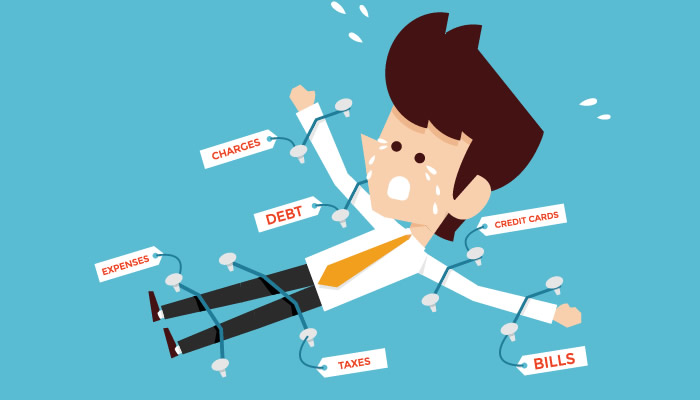
Do you have a friend with the same credit card? Have you ever compared the interest rate you’re both paying on it? It’s not unheard of for you to both be paying different interest rates on your credit card. In this article we’re going to look at how credit card interest rates are determined, what is a good credit card interest rate, and when credit card interest rates matter and don’t.
How are Credit Card Interest Rates Determined?
When applying for a credit card, lenders consider your credit score first and foremost. If you’d like to qualify for a credit card with the best interest rate, it’s important to have a good credit score. In most cases you’ll want to aim for a credit score above 700 to qualify for credit cards with the best interest rates.
If your credit score isn’t so great, you may still be approved for the credit card, but the interest rate may be higher. This is the lender’s way of protecting themselves since you pose a higher risk of not paying off your credit card balance compared to someone with an impeccable credit score.
In some cases, having a high income may also give you access to credit cards with lower interest rates.
What is a Good Credit Card Interest Rate?
When it comes to credit card interest rates, lower is always better. The lowest interest rate you can have on your credit card is 0% APR, although that’s typically only for a limited time. Zero percent APR also tends to be exclusively for balance transfers (when you’re transferring over balances you’re carrying on other credit cards). Balance transfers can be a great way to save money by consolidating debt. However, if you’re not transferring a balance, an interest rate of around 12% or lower is considered good by credit card standards.
As mentioned, the interest rate you’re offered largely depends on your credit score. It also depends on the lender itself. Each lender has its own criteria for determining the interest rate to charge you on your credit card. That’s why it’s so important to shop around if the interest rate on your credit card is something that matters to you.
When Credit Card Interest Rates Do and Don’t Matter
Getting a low interest rate on your credit card can save you a ton of money in interest (paying 12% sure beats paying 29% that some retail credit cards charge), but it only matters if you believe there’s a good chance you’ll be carrying a balance on your credit card at some point. If you’re someone who’s never carried a balance on your credit card, you pay off it off in full each month like clockwork and you have emergency savings or a line of credit to use in a financial emergency, then getting a low interest rate on your credit card probably doesn’t matter.
However, if you intend to make purchases on your credit card that will take several months to pay off, then that’s when the interest rate on your credit card matters. Since the interest rate tends to be high on your credit card, the interest can really add up quickly. By shopping around and getting a credit card with a slightly lower interest rate – or even one with a zero percent APR for the first few months – it can go a long way in saving you a lot of interest in the short – and long-term.
The Bottom Line
Credit card interest rates matter to those who intend to carry a balance or are likely to. For everyone else, you’re better off focusing on choosing a credit card that rewards you for using it. By figuring out what exactly matters to you before shopping for a credit card, you’re more likely to choose the credit card that’s best suited for you.




